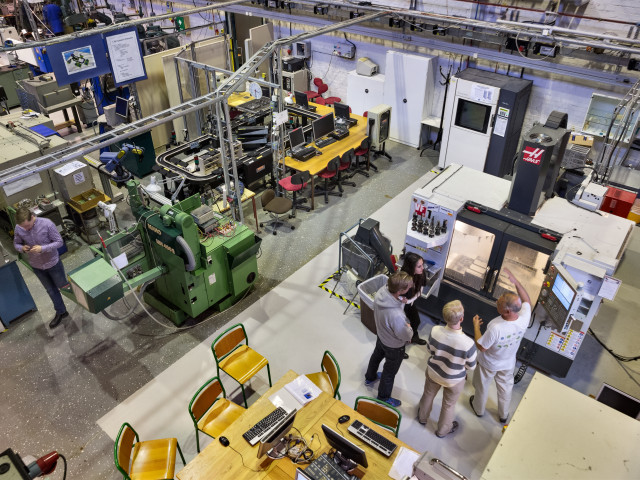- - Scientific theory and research ethics
- - Overview of common methods and techniques for collecting, analyzing and interpreting data in the fields of ergonomics and work environment engineering
- - Epidemiology and statistical methods
- - Qualitative methods
- - Interactive research
- - Academic writing for essays and reports
- - Workshops, laboratories and seminars for practice and reflection on the implementation of studies
HN2021 Theory and Methodology of Science with Applications (Ergonomics) 7.5 credits

Information per course offering
Information for Spring 2026 Start 13 Jan 2026 programme students
- Course location
KTH Flemingsberg
- Duration
- 13 Jan 2026 - 13 Mar 2026
- Periods
Spring 2026: P3 (7.5 hp)
- Pace of study
50%
- Application code
60660
- Form of study
Normal Daytime
- Language of instruction
English
- Course memo
- Course memo is not published
- Number of places
Places are not limited
- Target group
- No information inserted
- Planned modular schedule
- [object Object]
- Schedule
- Part of programme
Contact
Course syllabus as PDF
Please note: all information from the Course syllabus is available on this page in an accessible format.
Course syllabus HN2021 (Autumn 2024–)Headings with content from the Course syllabus HN2021 (Autumn 2024–) are denoted with an asterisk ( )
Content and learning outcomes
Course contents
Intended learning outcomes
The students shall after their studies be able to:
- understand differences and relationships between different scientific perspectives and methods and have well-grounded reflections about this
- understand how scientific knowledge is generated and related to theory of science
- understand and be able to apply qualitative and quantitative methodology approaches
- apply knowledge of how to design a study, as well as propose suitable methods and techniques for collection, analysis and interpretation of data for various types of studies
- apply commonly used methods within research and development in the field of ergonomics and work environment engineering
- understand differences between research and development work
- be able to report studies according to standards within the field of ergonomics and work environment engineering
- critically review and evaluate research reports and other studies within the fields of ergonomics and work environment engineering.
Literature and preparations
Specific prerequisites
180 ECTS credits, in technical, natural or medical sciences or in human resource studies. English B/English 6
Literature
You can find information about course literature either in the course memo for the course offering or in the course room in Canvas.
Examination and completion
Grading scale
A, B, C, D, E, FX, F
Examination
- SEM4 - Assignment and seminar for quantitative methods, 2.0 credits, grading scale: P, F
- SEM5 - Assignment and seminar for qualitative methods, 2.0 credits, grading scale: P, F
- TEN2 - Written examination, 3.5 credits, grading scale: A, B, C, D, E, FX, F
Based on recommendation from KTH’s coordinator for disabilities, the examiner will decide how to adapt an examination for students with documented disability.
The examiner may apply another examination format when re-examining individual students.
If the course is discontinued, students may request to be examined during the following two academic years.
Examiner
Ethical approach
- All members of a group are responsible for the group's work.
- In any assessment, every student shall honestly disclose any help received and sources used.
- In an oral assessment, every student shall be able to present and answer questions about the entire assignment and solution.
Further information
Course room in Canvas
Registered students find further information about the implementation of the course in the course room in Canvas. A link to the course room can be found under the tab Studies in the Personal menu at the start of the course.
Offered by
Main field of study
Technology and Health
Education cycle
Second cycle